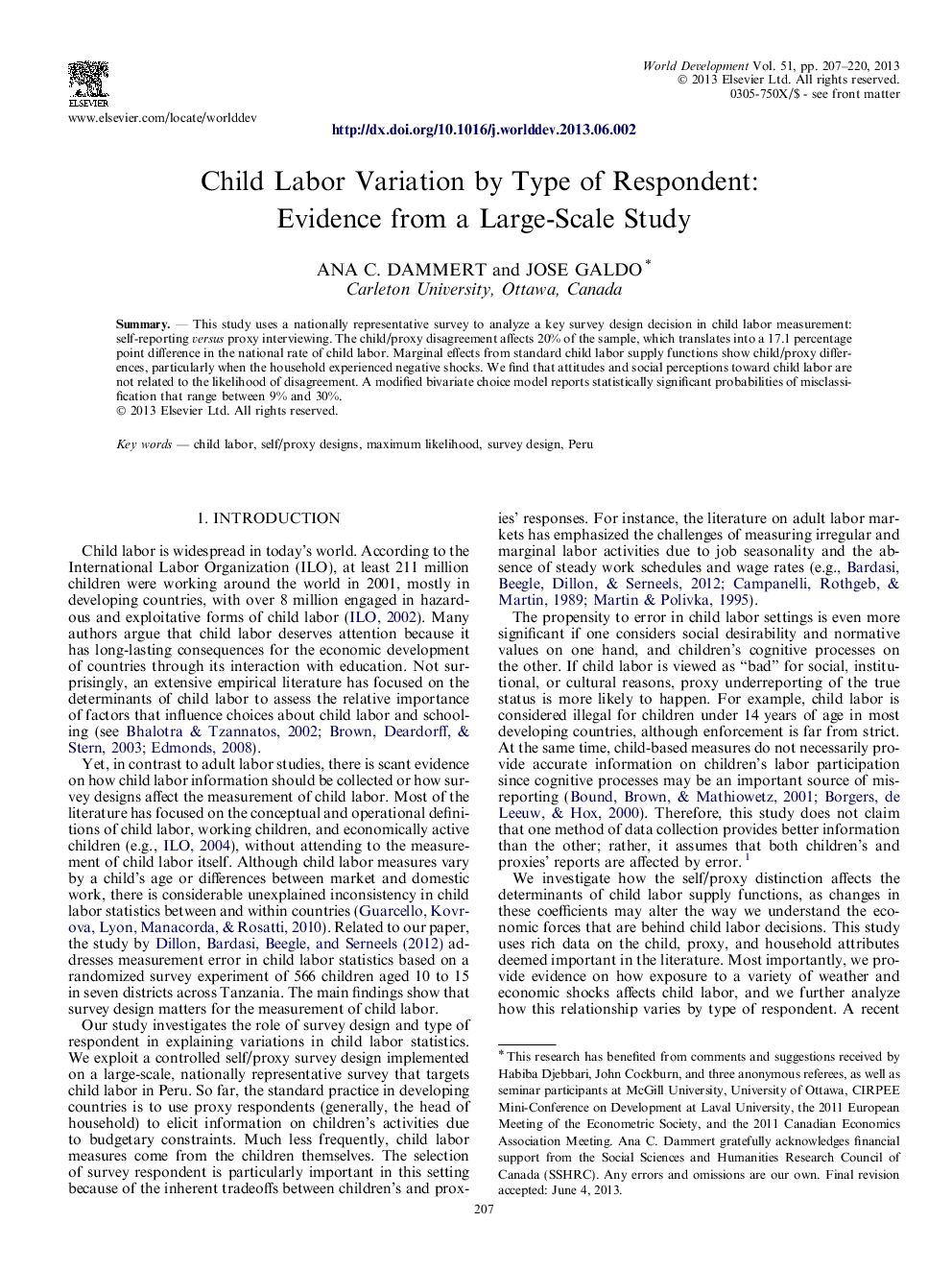| Article ID | Journal | Published Year | Pages | File Type |
|---|---|---|---|---|
| 7395441 | World Development | 2013 | 14 Pages |
Abstract
This study uses a nationally representative survey to analyze a key survey design decision in child labor measurement: self-reporting versus proxy interviewing. The child/proxy disagreement affects 20% of the sample, which translates into a 17.1 percentage point difference in the national rate of child labor. Marginal effects from standard child labor supply functions show child/proxy differences, particularly when the household experienced negative shocks. We find that attitudes and social perceptions toward child labor are not related to the likelihood of disagreement. A modified bivariate choice model reports statistically significant probabilities of misclassification that range between 9% and 30%.
Related Topics
Social Sciences and Humanities
Economics, Econometrics and Finance
Economics and Econometrics
Authors
Ana C. Dammert, Jose Galdo,
